PUBH100: Public Health Course for CPS High School Students
Earn 3 semester hours of college credit at UIC as you explore public health and experience our campus community!
Key facts about the course Heading link
-
11 & 12th grade CPS students with 3.0+ GPA are eligible.
-
Free tuition costs.
-
Free textbook charges.
Apply to join PUBH100
About the course Heading link
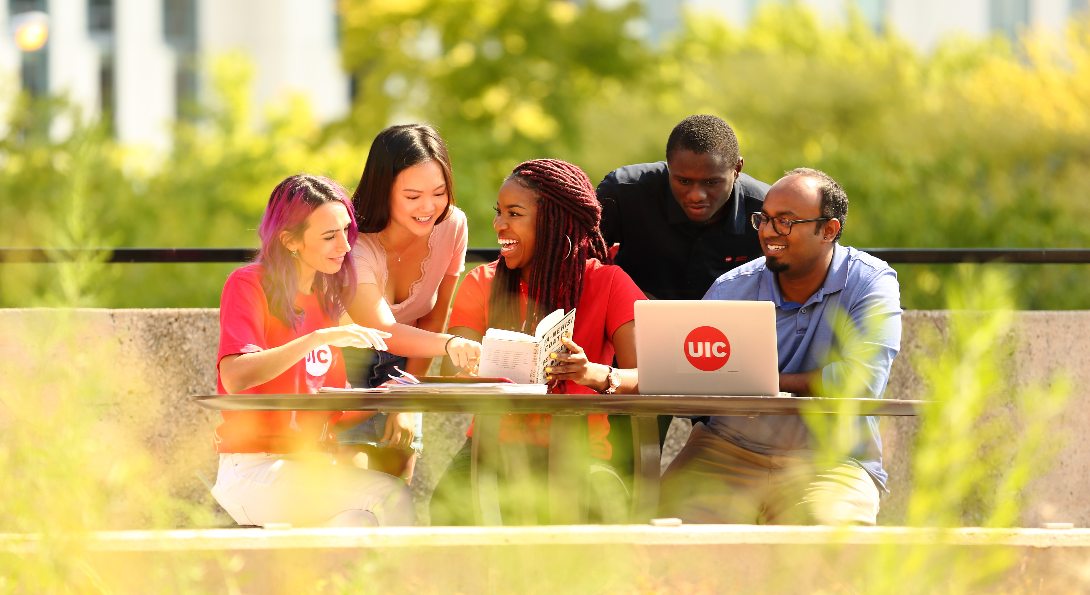
The COVID-19 pandemic has shown the key role of public health in addressing an infectious disease outbreak. But public health plays a much larger role in keeping our world a healthy place – see some of the key areas of public health below. PUBH 100 Health and the Public is designed to teach you about the many factors that affect the health of communities and society. The course is held on UIC’s campus on Tuesday and Thursday from 2 to 3:15 p.m. during the spring 2024 semester. In addition to the time spent in class, you should plan to spend 3-6 hours outside of class each week working on course activities. Each week, you will read, watch, do and discuss topics in public health presented by professors and practitioners on the UIC faculty. This course is available to CPS students at no cost through a UIC-CPS partnership initiative.
Learn more about public health Heading link
Public health impacts our communities in many ways
About environmental justice and public health

The water we drink, the air we breathe, the soil we build our homes on: all have impacts on human health. Many communities have poor health outcomes due to the disproportionate burden of contamination and general pollution. A distressed environment can lead to increased health disparities and inequities in communities.
In our Local Citizenship and Community Health Initiatives class, professors Laurel Berman and Serap Erdal teach undergraduates the basics of community engagement through a social and environmental justice lens. Students learn how where we live, work and play, known as the general environment, impacts health and influences how public health professionals work with communities to address environmental health challenges.
About policing and public health
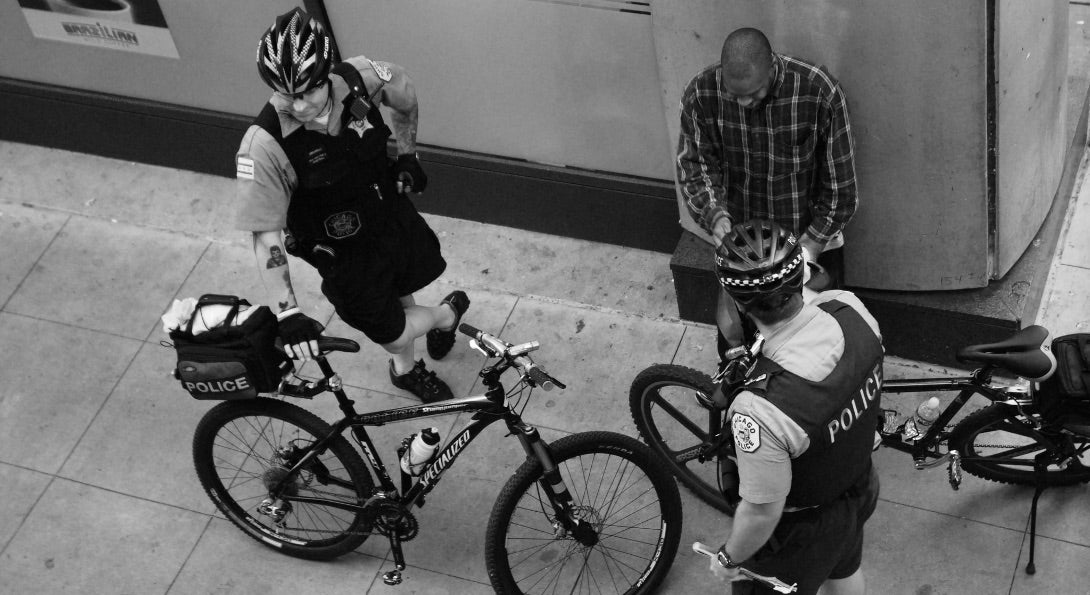
For every George Floyd and Breonna Taylor, there are thousands of Americans who are injured in interactions with law enforcement each year. Your public health education can prepare you to work in public policy or enter law school to address these injustices.
At SPH, our Law Enforcement Epidemiology Project is building a nationwide database for tracking civilian injuries and deaths from police encounters. Professor Sage Kim, who teaches in the undergraduate programs, is investigating how police hypersurveillance impacts the health of people in Chicago neighborhoods. And during the pandemic, we have advocated for local and state governments to fully commit to the health and safety of people who are incarcerated.
About infectious diseases and public health
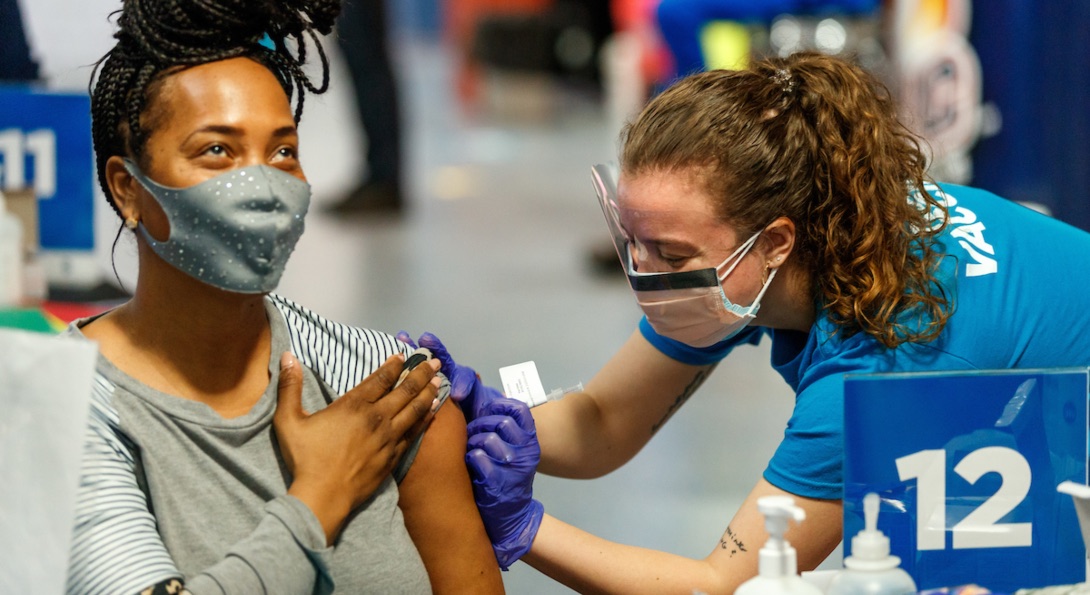
You might be familiar with some of the roles of public health professionals in an infectious disease outbreak – testing, contact tracing and vaccine distribution.
But public health’s role is much broader, because social determinants of health impact levels of personal risk in the pandemic. In our continuing COVID-19 response, our environmental health experts sample wastewater in the Cook County jail to track outbreaks and protect incarcerated individuals. SPH worker health advocates build strategies to protect essential workers in the workplace. Biostatisticians forecast how many tests neighborhoods need to keep pace with the spread of the virus. And our community health leaders work with non-profit groups to address vaccine hesitancy.
About worker health and public health
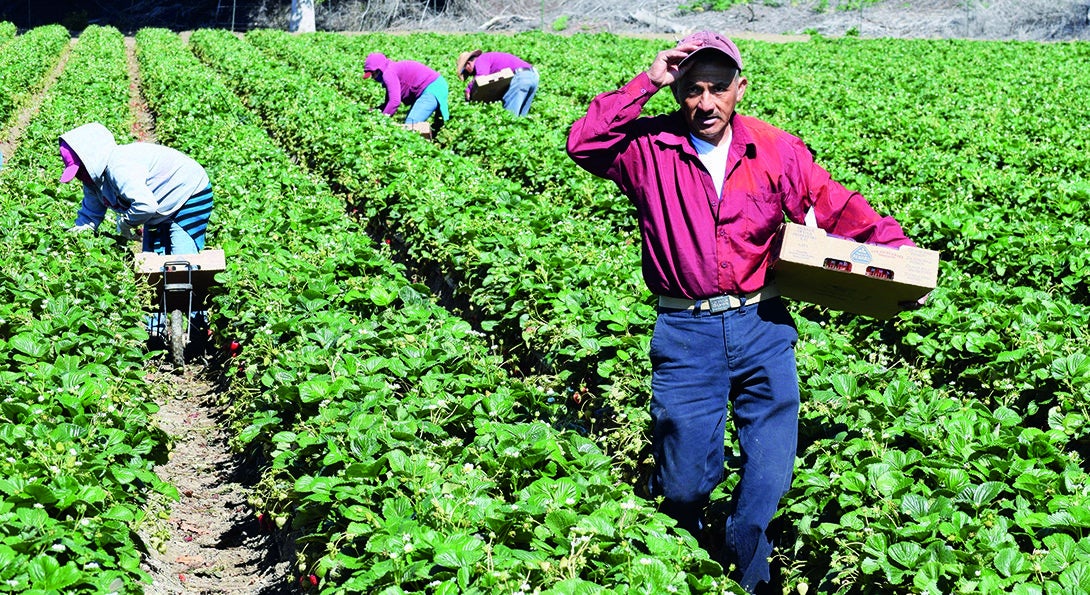
Food is vital and essential for our health, but what about the workers who produce our food? Migrant agricultural workers spend long hours harvesting our food often facing hazards – exposure to pesticides, chronic injury, temporary work and low pay are some of the challenges public health seeks to address.
UIC public health students recently addressed food insecurity and food production with a community project called Power to the Pantry. With guidance from faculty Joseph Zanoni, a researcher with SPH’s Center for Healthy Work, students explored how to promote safe, healthy working conditions and fair compensation for all food chain workers from production to consumption, while building stronger access for our communities to fresh, healthy and locally produced foods.
Learn more about their project at powertothepantry.com.
About community health and public health
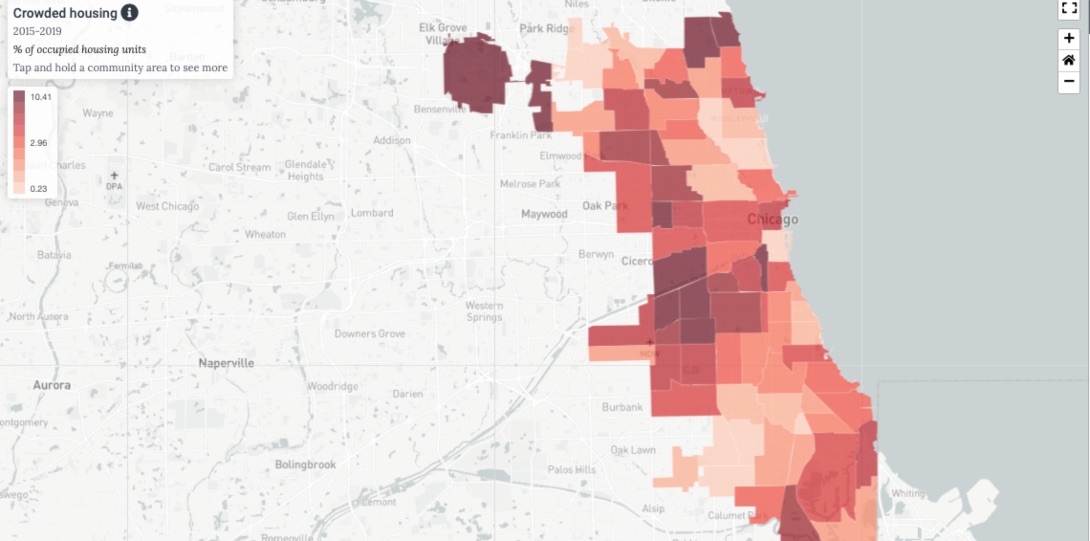
Health disparities are higher rates of illness, injury, disability or mortality experienced by one group relative to another. Closing the gaps in health disparities is a key part of community health work.
As a public health student at UIC, you will actively investigate the drivers of health disparities and ways to address them. For example, students have examined how lack of access to housing can create physical, mental and emotional health problems. Whatever your passion, community health work positions you to directly address health challenges that face your neighborhoods and social circles.
About global health and public health
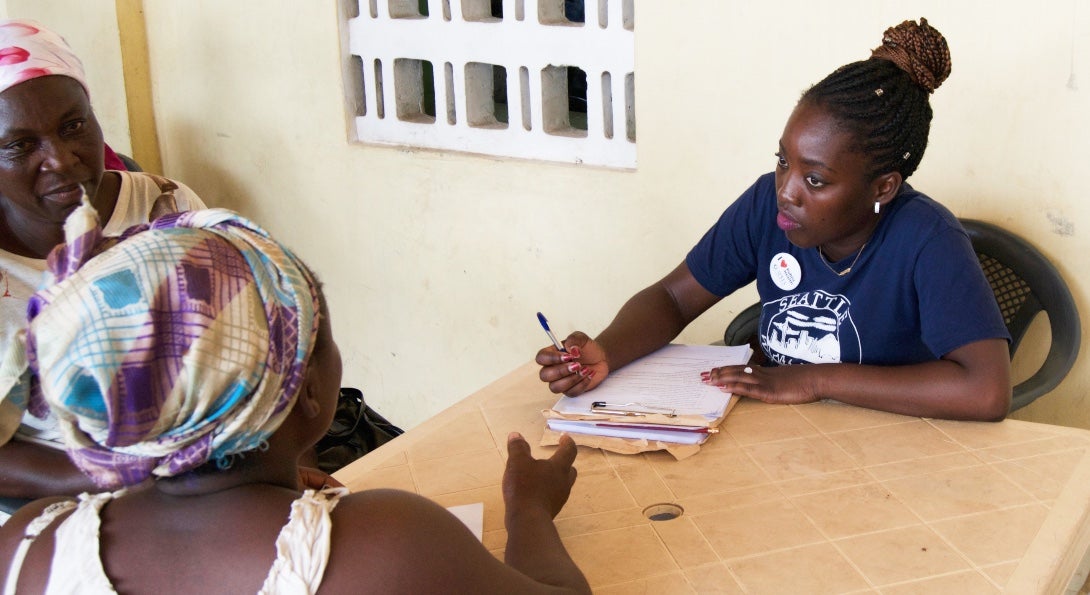
Fighting COVID-19, Ebola, HIV/AIDS, tuberculosis, malaria and cardiovascular disease is only part of global health; global public health leaders seek the links between biological, social and environmental aspects of health and illness. As global citizens, our challenge is to collaborate toward the best solutions for persistent global health challenges.
At SPH, students are engaged in global health content creation through hands-on work including construction of a photo voice project, building a country website, production of an advocacy policy brief and completion of a real-world global health success project. The skills and opportunities gained in class provide a solid basis for future work or careers in global public health.
About community engagement and public health
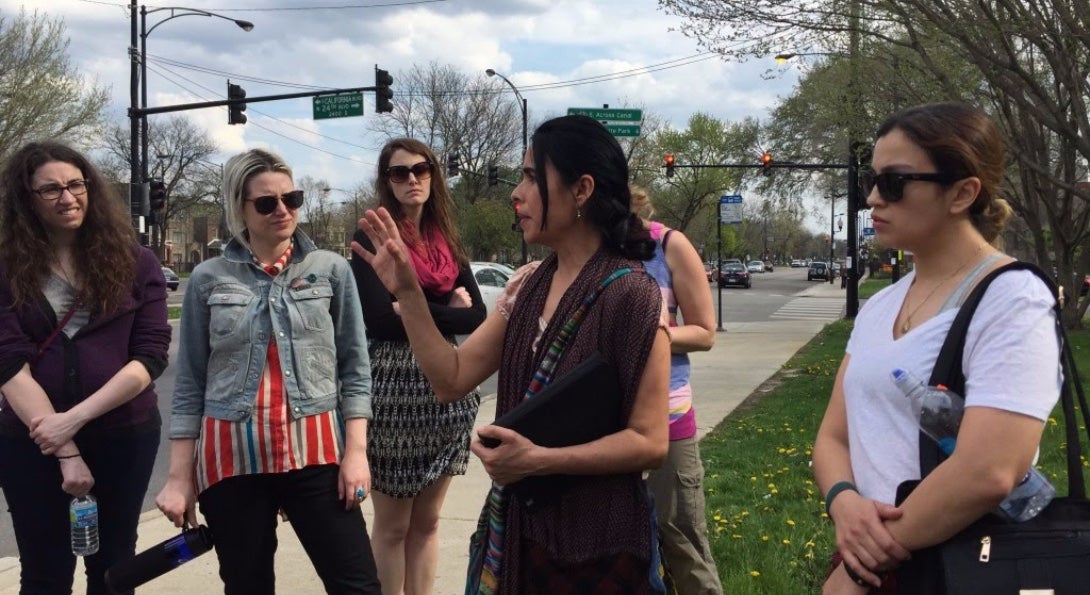
Our programs stress community engagement because the best ways to improve public health rely on community members as active participants. At SPH, students learn how to identify and collaborate to meet communities’ specific health challenges and priorities. The curriculum is designed to give students opportunities to explore, develop and apply critical skills for respectful community engagement aligned with their own community passions.
Our students have developed training modules to promote COVID-19 vaccines among Illinois youth, prepped Warehouse Workers for Justice with worker rights tools, collaborated with Navajo Nation students on environmental health and land reuse and fostered relationships with houseless folks to identify ways to address their health needs.